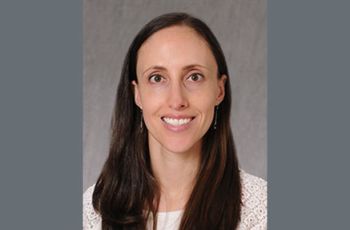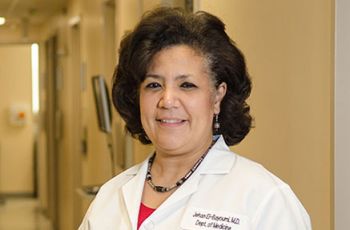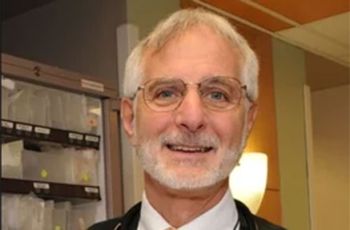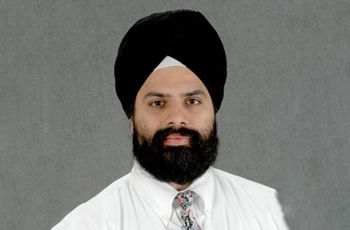News Archive
Congratulations to Elizabeth Robinson, MD, PGY-III, in the Department of Dermatology at the George Washington University School of Medicine and Health Sciences, on receiving two research awards.
Urgent Matters, Philips Blue Jay Consulting, and Schumacher Clinical Partners are pleased to announce the winners of the 2017 Emergency Care Innovation of the Year Award, a competition to foster innovation in emergency departments nationwide.
Jehan “Gigi” El-Bayoumi, MD, executive director of the Rodham Institute and professor of medicine and of prevention and community health, was interviewed by NBC4 about the Rodham Institute and it's role in the Washington, D.C.
Gerard Gioia, PhD, professor of psychiatry and behavioral sciences and of pediatrics, spoke to NBC4 about concussions in young athletes.
GW School of Medicine and Health Sciences (SMHS) physical therapy (PT) students spent a Saturday earlier this month helping those in need in their community and abroad as part of the annual international PT Day of Service.
David Steinhorn, MD, professor of pediatrics, spoke to Wired for an article discussing the expansion of telemedicine and how medical professionals are adapting to it.
Alexandria City Public Schools and the GW School of Medicine and Health Sciences have established a partnership that creates a Career and Technical Education pathway for students interested in careers in medicine and health care.
Lakhmir Chawla, MD, professor of anesthesiology and critical care medicine and of medicine, was quoted by International Business Times in an article discussing the brain and an individual's awareness in the moments immediately following death.
Robert Siegel, MD '77, was awarded the Distinguished Alumni Achievement Award, the highest honor given to alumni by the university and the GW Alumni Association.
In September, about 30 new members of the SMHS faculty met with Jeffery S. Akman, MD ’81, RESD ’85, vice president for health affairs, Walter A. Bloedorn Professor of Administrative Medicine, and dean of SMHS, for a chance to learn about all SMHS has to offer.








